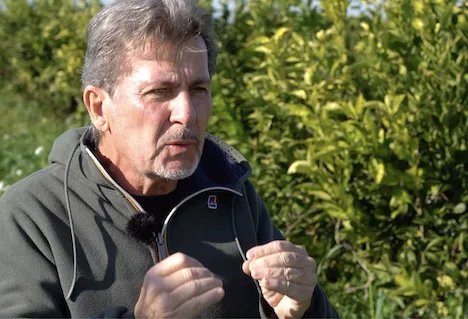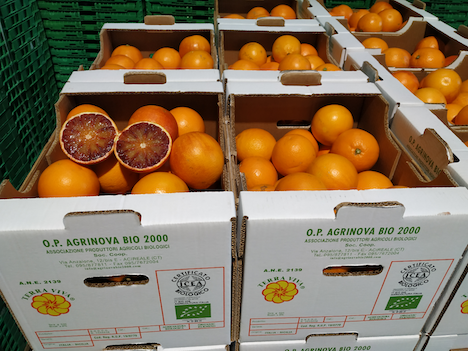As of 31 December 2022, Sicily ranked as Italy's first organic producing and exporting region, with 55 percent of the area dedicated to organic citrus cultivation and 18.6 percent to vegetables. In such an important context in terms of area and operators involved, Agrinova bio 2000 has consolidated its social base, consisting of 55 companies located throughout the island, particularly in the provinces of Catania, Syracuse, Messina and Ragusa.

"In 2022, organic products experienced a decline in sales, after a number of positive years, even on the pivotal German market. The halt in growth, accompanied by a reduction in market prices, has raised some questions for organic raw material producers on whether it is the impact by inflation? Or Europe's instability? Or the ever-rising costs? Why should one produce organic if the crop is priced like a conventional product? Why should consumers buy organic if they are also offered sustainable zero-residue products, perhaps at lower prices? We are, de facto, living in a transitional phase where organic is no longer a niche, but is called upon to conquer and consolidate a new market positioning," says Francesco Ancona, technical manager of OP Agrinova Bio 2000.
"The European regulations," explains Francesco Ancona, " have created great expectations in the medium term, granted that those who do organic are waiting for realistic answers in the short term. There is no doubt a need to improve communication to the final consumer, who should be aware that organic is one of the drivers of sustainability, one among many; but, when it comes to food sustainability, it certainly is the protagonist. That is why an institutional policy of supporting national consumption of organic production is needed."
The 55 member farms of OP Agrinova Bio 2000 cover a cultivated area of 616 hectares, of which 55 percent is dedicated to citrus crops, about 10 percent to open-field and protected vegetable crops, 10 percent to various orchards and nuts, 5 percent to tropical fruits (avocados), which are gradually increasing as a result of climate change, 5 percent to olive trees, and the remainder to herbaceous crops (15 percent). The average farm size of member farms is about 10 hectares. They are often multifunctional farms, such as agritourisms, that offer educational farm services.

"We are committed to investing in research," OP Agrinova Bio 2000 continues, "and to building consumer loyalty in the organic supply chains where we operate, by reinforcing the traceability systems we already have, so that there is more of a market for our farmers, and by strongly rejecting - along with other organic operators - the so-called great famine narrative that if we grow food sustainably, we will not be able to feed a growing population.
Commercially, Agrinova Bio 2000 supplies local stores and supermarkets, and is increasingly developing the short supply chain through direct sales to consumers and GAS-Solidarity Purchasing Groups. Since 2004, the cooperative has set up a weekly market within the Acireale conditioning center where it is possible to buy organic products directly from associated and accredited producers. However, its commercial channels are quite diversified to boost sales in alternative channels, which means that a percentage of the citrus production goes to school canteens, and for the past few years, in addition, e-commerce has been activated for the Italian market, with a delivery service within 48h of ordering.
Among the cooperative's innovative and flagship products, we can find juices, such as blood orange, blonde orange, lemon, grapefruit and tangerine, packaged immediately after pressing and pasteurized within minutes by a certified organic company located in the town of Aci Catena (CT, Sicily), which also extracts essential oils from the peel. These by-products are sold mainly through the Horeca channel and to some customers abroad. To reduce citrus processing waste as much as possible, the peels that are not used for the production of essential oils, cleaned and frozen, are processed to obtain a natural dye, and the fruits, cut in half and emptied of pulp, are supplied to ice cream parlors that use them as natural containers. Further citrus waste, finally, is used for industrial purposes or on livestock farms for the preparation of cattle feed rations (mash).
At the moment, the growers' organization, which has recorded over 4 million euros in product sales, has 49 percent of its sales in Italy and exports the remainder to Belgium (19 percent of the value of exports to Europe), England (29 percent), Germany (9 percent), Switzerland (15 percent), France (26 percent), and the remaining 2 percent to other countries (Poland, Luxembourg, and Greece).
For more information:
OP Agrinova Bio 2000
Via Anzalone, 12 bis/E
95024 Acireale (CT)
(+39) 095 877811
[email protected]
www.agrinovabio2000.it
